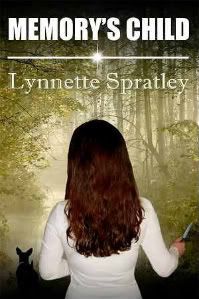Before I write my review of Lauren Clark’s Dancing Naked in Dixie, a couple of notes. First, I am pleased to call Lauren Clark a friend, though we’ve never met. She’s been friendly, incredibly helpful and a joy to converse with via Facebook and e-mail.
Second, I received an advance reader’s copy of Dancing, but the author did not ask me to review the book in return. She did ask for a very brief blurb later, which I provided.
Okay, with all that out of the way, here’s what I think: read it.
Lauren Clark’s first offering was Stay Tuned, set in the town where I live, so it caught my interest right away. Plus, the setting was a television news station. I have a (very) little experience with television news and three decades of experience with print journalism. I enjoyed the book and appreciated the spot-on setting and characterizations, though contemporary women’s fiction isn’t the genre I normally choose to read.
Some authors write book after book with about the same level of skill, and some authors can never quite produce anything as good as their first books.
Some, like Clark, improve with experience. While Stay Tuned was a fun read and I certainly don’t resent spending my time on it, Dancing is a leap forward. Clark seems to be fine-tuning a native skill for storytelling.
Dancing starts off funny and fast, then proceeds to send the reader off on a roller coaster ride of romance and adventure, sprinkled with more humor. You might even shed a tear or two, though I won’t say why.
Here’s the synopsis from the product page on Amazon:
Travel writer Julia Sullivan lives life in fast-forward. She jet sets to Europe and the Caribbean with barely a moment to blink or sleep. But too many mishaps and missed deadlines have Julia on the verge of being fired.
With a stern warning, and unemployment looming, she’s offered one last chance to rescue her career. Julia embarks on an unlikely journey to the ‘Heart of Dixie’—Eufaula, Alabama—home to magnificent mansions, sweet tea, and the annual Pilgrimage.
Julia arrives, soon charmed by the lovely city and her handsome host, but her stay is marred by a shocking discovery. Can Julia’s story save her career, Eufaula, and the annual Pilgrimage?
I grew up about 30 miles from Eufaula, Alabama. In addition to camping, fishing and one truly foible-filled 4th of July picnic, I once worked at the newspaper there. I know Eufaula, and when you read Dancing, you will get to know it, too, because Clark shows the town to you with exquisite accuracy.
You can almost taste the sweet tea and hear the slow drawl as the characters interact. Clark is careful to include all the senses, gifting the reader with the sights, sounds and scents of this lovely old Southern town and its people. I laughed out loud when Clark revealed that one of the characters is named Shug Jordan, after the famous Auburn football coach. She even explains the correct pronunciation: JERR-dan. Now that’s nailing it!
While I’m not as familiar with New York City, I suspect Clark, a former television newsperson herself and thus accustomed to extensive research, nailed that city’s “personality” as well.
The pacing is well done. The characters are distinct and generally well-defined. You don’t get handed everything – some subtleties may dawn on you a page or two later. I like that.
Dancing is interesting. As a writer, I read books not just for story but for craft, and Clark has a good grasp of both. I expect we will see her writing career grow exponentially, and I’m looking forward to her next book.
While I received the reader’s copy free from the author, I bought the Kindle edition as soon as it was released. Why? Because I wanted to read the final, polished version, and because I firmly believe in supporting good authors as much as possible.
Click on the image of the book cover to go to the product page on Amazon. Dancing Naked in Dixie is available in e-book and paperback form.



